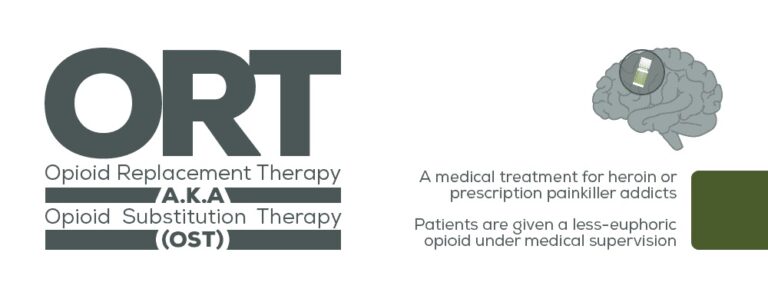How Does Missouri Opioid Replacement Therapy Programs Work?
In the face of the rising tide of opioid addiction, Missouri has adopted a more compassionate and effective approach, including Opioid Replacement Therapy (ORT). This method of treatment is referred to as replacement therapy for addiction. It focuses not on abrupt cessation of drug use but instead on a medically supervised substitution of a safer opioid.
Recent studies suggest that medical marijuana could be efficacious in mitigating pain intensity, much like opioids, hinting at potential alternative treatment methods. However, many of these findings are preliminary and do not suggest that cannabis is an outright replacement for opioids. The path toward recovery is complex and individualized, requiring a multifaceted approach that may include ORT, behavioral therapies, and other supportive treatments.
What is Opioid Replacement Therapy (ORT)
Opioid replacement therapy is just one type of replacement therapy for addiction. It is a comprehensive treatment plan for individuals struggling with an addiction to opioids. For some, this may mean abusing prescription opioids, and for others, it may involve opioid-based street drugs like heroin. The primary goal of ORT therapy is to replace the illicit, harmful opioids that a person is addicted to with a medically supervised dose of a longer-acting but less euphoric opioid.
While the discussion around cannabis and opioids continues, ORT is a widely accepted and evidence-based approach to treating opioid addiction. Medical marijuana, while showing promise in some areas, is not a one-size-fits-all solution and should not be considered a direct substitute for ORT without further research and professional guidance.

How does Opioid Replacement Therapy work in treating opioid addiction?
The use of opioids can lead to physical dependence over time, making it challenging for individuals to quit using them without experiencing withdrawal symptoms. Cannabis, on the other hand, has been shown to provide pain relief without the risk of physical dependence. Replacement therapy for addiction involves substituting the addictive opioid with another ORT medical-approved opioid like methadone or buprenorphine, which are considered safer and easier to manage.
In the ongoing conversation about opioids and cannabis, some studies suggest a correlation between cannabis use and reduced opioid cravings, this does not equate to an endorsement of self-medication with marijuana. Professional medical guidance is always suggested in navigating addiction treatment options.
START SHOPPING NOW
What are the advantages of Opioid Replacement Therapy compared to traditional detoxification methods?
Unlike traditional methods that focus solely on detoxification and drug abstinence, opioid replacement therapy provides a more holistic approach to addiction recovery. This substitution therapy reduces the severity of withdrawal symptoms and cravings. By weaning off of opioids slowly over time, instead of all at once, this form of addiction therapy is said to be successful in reducing the risk of relapse.
Furthermore, ORT therapy also allows individuals to recover their physical and mental health while maintaining their daily routines. As the debate around cannabis and opioids evolves, one thing remains clear, regardless of the potential benefits of cannabis, ORT continues to be a proven method of tackling opioid addiction, offering numerous advantages over traditional detox methods.
What are the risks of Opioid Replacement Therapy?
While ORT has many benefits, it is not without risks. One of the main concerns with this form of addiction treatment is the potential for misuse of the ORT medical-approved opioids used in the therapy. These programs need to be closely monitored by healthcare professionals to mitigate these risks.
The structured protocol of opioid replacement therapy, set by healthcare providers, can leave some clients feeling they lack autonomy in their treatment, but many still find the benefits outweigh these concerns. Another concern is the necessity to travel to a clinical setting, which may pose challenges for those with jobs or reliant on public transportation, is another factor to consider.
The efficacy of ORT can also vary based on the specific drug prescribed. For instance, Suboxone, a blend of buprenorphine and naloxone, significantly limits potential misuse, whereas buprenorphine alone presents a higher risk of abuse. Nevertheless, despite these potential drawbacks, the advantages of ORT often surpass the logistical hurdles associated with accessing opioid replacement services for many clients.
What is the goal of long-term Opioid Replacement Therapy programs?
The primary goal of long-term opioid replacement therapy programs is to help individuals lead healthy and productive lives, free from the grips of opioid addiction. These programs aim to gradually reduce the dosage of the substitute opioid, with the ultimate goal of complete abstinence.
As researchers continue to examine the relationship between cannabis and opioids, it’s important to remember that the ultimate goal remains the same. Which is to help individuals overcome addiction and lead healthier lives. While cannabis may play a role in pain management, it is not a cure-all solution and should not be seen as a substitute for comprehensive treatment programs like ORT.
What role do healthcare providers and specialists play in opioid replacement programs?
Healthcare providers and specialists play a critical role in replacement therapy for addiction. These professionals, often part of an ORT therapy team, provide medical supervision, adjust dosages, manage side effects, and offer psychological support.
They also ensure that the ORT medical guidelines are strictly followed. In regards to cannabis and opioids, these healthcare professionals are also key in navigating these complex topics and ensuring patients receive accurate information and appropriate treatment.
Who are qualified for Opioid Replacement Therapy programs in Missouri?
Missouri’s opioid replacement therapy programs are tailored for individuals who have been diagnosed with opioid use disorder. Eligibility for these programs is determined based on an individual’s health condition, the severity of their addiction, and their willingness to participate in the substitution therapy.
Although medical marijuana has been touted as a potential tool in the fight against opioid addiction, it’s not a silver bullet and its use should always be under the guidance of a healthcare professional. The path to recovery is a personal one, and each individual’s treatment plan should be tailored to their unique needs and circumstances.
How to access Opioid Replacement Therapy programs in Missouri
Accessing opioid replacement therapy programs in Missouri involves a few steps. It begins with a thorough evaluation by a healthcare provider specializing in addiction. Once diagnosed with an opioid use disorder, individuals can then enroll in an ORT therapy program.
Now, there is ongoing research into the potential role of cannabis in treating opioid addiction. Despite this, any addiction treatment plan should be guided by a healthcare professional. Accessing and navigating these services can be a complex process, but with the right support, recovery is within reach.
Overcoming addiction to opioids is a challenging journey, but it’s one you don’t have to face alone. With the help of ORT, you can regain control over your life and move towards recovery. It’s never too late to seek help for opioid addiction. The first step towards recovery is often the hardest, but it’s also the most important. So, take that step today and explore the benefits of replacement therapy for addiction and substitution therapy with your primary care provider.
For more information regarding the relationship between cannabis and opioids, we recommend the NORML Fact Sheet on opioids and marijuana. Their collective conclusion of all the reviewed scientific studies on cannabis and opioids is that “Cannabis access is associated with reduced rates of opioid use and abuse, opioid-related hospitalizations, opioid-related traffic fatalities, opioid-related drug treatment admissions, and opioid-related overdose deaths”. These sorts of findings are not new. Back in 2018, Dr. Sanjay Gupta published a letter on CNN to then U.S. Attorney General Jeff Sessions, stating, “Medical marijuana could save many addicted to opioids”.
If you and your healthcare provider decide that medical marijuana may be an option for you, then we have you covered at all of our Verts Neighborhood Dispensaries in Missouri. Shop our dispensaries in Dexter, Joplin, Pacific, or Gallatin for all of your medical marijuana needs online, or in person.
Company
Shopping
Verts Neighborhood Dispensary 2024 | All Rights Reserved
